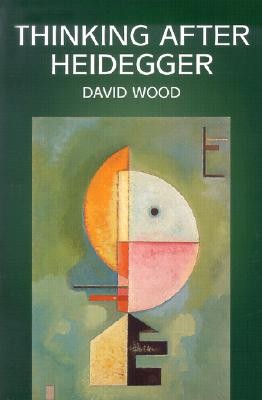
- We will send in 10–14 business days.
- Author: David Wood
- Publisher: Polity Press
- ISBN-10: 0745616232
- ISBN-13: 9780745616230
- Format: 15.3 x 23.2 x 1.8 cm, minkšti viršeliai
- Language: English
- SAVE -10% with code: EXTRA
Reviews
Description
In Thinking After Heidegger, David Wood takes up the challenge posed by Heidegger - that after the end of philosophy we need to learn to think. But what if we read Heidegger with the same respectful irreverence that he brought to reading the Greeks, Kant, Hegel, Husserl and the others? For Wood, it is Derrida's engagements with Heidegger that set the standard here - enacting a repetition through transformation and displacement. But Wood is not content to crown the new king. Instead he sets up a many-sided conversation between Heidegger, Hegel, Adorno, Nietzsche, Blanchot, Kierkegaard, Derrida and others. Derrida and deconstruction are first critically addressed and then drawn into the fundamental project of philosophical renewal, or renewal as philosophy.
The book begins by rewriting Heidegger's inaugural lecture, 'What is Metaphysics?' and ends with an extended analysis of the performativity of his extraordinary Beitrage. Thinking after Heidegger will be a valuable text for scholars and students of contemporary philosophy, literature and cultural studies.
EXTRA 10 % discount with code: EXTRA
The promotion ends in 23d.09:19:27
The discount code is valid when purchasing from 10 €. Discounts do not stack.
- Author: David Wood
- Publisher: Polity Press
- ISBN-10: 0745616232
- ISBN-13: 9780745616230
- Format: 15.3 x 23.2 x 1.8 cm, minkšti viršeliai
- Language: English English
In Thinking After Heidegger, David Wood takes up the challenge posed by Heidegger - that after the end of philosophy we need to learn to think. But what if we read Heidegger with the same respectful irreverence that he brought to reading the Greeks, Kant, Hegel, Husserl and the others? For Wood, it is Derrida's engagements with Heidegger that set the standard here - enacting a repetition through transformation and displacement. But Wood is not content to crown the new king. Instead he sets up a many-sided conversation between Heidegger, Hegel, Adorno, Nietzsche, Blanchot, Kierkegaard, Derrida and others. Derrida and deconstruction are first critically addressed and then drawn into the fundamental project of philosophical renewal, or renewal as philosophy.
The book begins by rewriting Heidegger's inaugural lecture, 'What is Metaphysics?' and ends with an extended analysis of the performativity of his extraordinary Beitrage. Thinking after Heidegger will be a valuable text for scholars and students of contemporary philosophy, literature and cultural studies.


Reviews